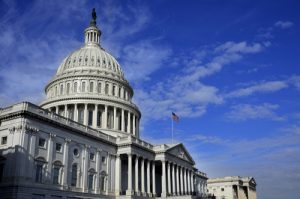
U.S. Reps. Brian Fitzpatrick (R-PA) and Michael McCaul (R-TX) recently unveiled a bipartisan bill that would direct federal banking regulators, law enforcement and financial institutions to cooperate on combating the use of America’s financial system for human trafficking.
The International Labor Organization estimates that more than $150 billion in illegal profits are made annually from forced labor and $99 billion is earned from the victims of sexual exploitation, making human trafficking the third-most lucrative criminal enterprise globally.
“Traffickers use the global financial system to launder their illicit funds,” Rep. Fitzpatrick said. “Cutting off their access to the banking system is critical to putting an end to their abhorrent crimes.”
The congressmen on Feb. 4 introduced the End Banking for Human Traffickers Act, H.R. 808, with original cosponsors including U.S. Rep. Bill Keating (D-MA).
If enacted, H.R. 808 would require the Financial Institutions Examination Council to review and enhance training and procedures to improve anti-money laundering capabilities and other efforts to detect financial transactions related to human trafficking, according to a summary provided by Rep. Fitzpatrick’s office.
“Our End Banking for Human Traffickers Act will not only bolster our efforts to prevent human traffickers from using our domestic financial system, but also sends a signal around the world to cut off traffickers from the global financial system,” said Rep. Fitzpatrick.
Additionally, H.R. 808 would task the President’s Interagency Task Force to Monitor and Combat Trafficking in Persons with analyzing current U.S. government and financial institution anti-money laundering efforts and to develop recommendations for Congress and regulators around strengthening such programs, the summary states.
“Human trafficking is a multibillion-dollar criminal industry that traps millions of people in a modern-day form of slavery. By working with law enforcement and financial institutions, the U.S. can obstruct traffickers’ monetary resources and save lives,” said Rep. McCaul, ranking member of the U.S. House Foreign Affairs Committee. “The only way we can put an end to human trafficking is by working together at every level of society.”



